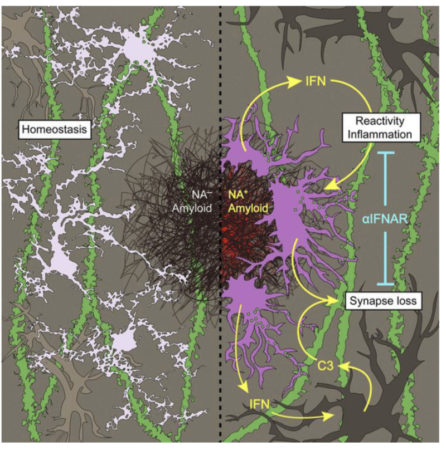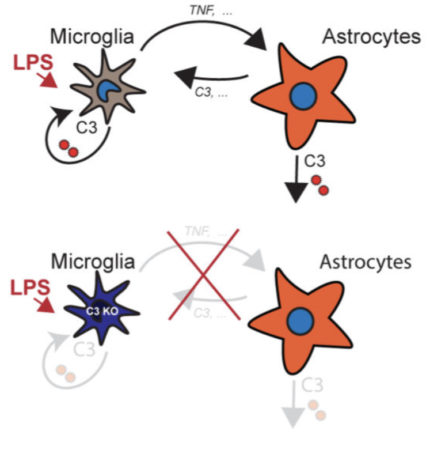If you think you might have mild cognitive impairment (MCI) Part 4: Complement protein C3
Microglia contribute to neuroimmunity by phagocytosing and presenting antigens to T cells.
It is also thought to be involved in the elimination of superfluous neurons and synapses
during neurodevelopment and to maintain homeostasis of brain tissue.
And after maturity, it is involved in cognitive functions.
In Alzheimer’s disease,
it has been suggested that microglia remove plaques and abnormal tau proteins and
simultaneously damage normal neurons and synapses, leading to cognitive decline.
Especially, the anomaly has been reported at presynaptic sites.
As a mechanism,
microglia appear to use complement to contact synapses and then
remove them to erase and modify memory.

It was revealed that microglia use C1q and C3 among the complements.
In a mouse model of Alzheimer’s disease,
C1q was shown to increase at synapses prior to plaque formation,
revealing that administration of oligomeric amyloid-β protein increased C1q.
Furthermore, administration of oligomers of amyloid-β protein was shown to
eliminate synapses by microglia via C3 receptors in an acute model.
Conversely, knocking out C3 in an Alzheimer’s disease animal model
reduced synaptic loss and improved behavior.
It was also revealed that C1q and C3 are involved in memory loss.


